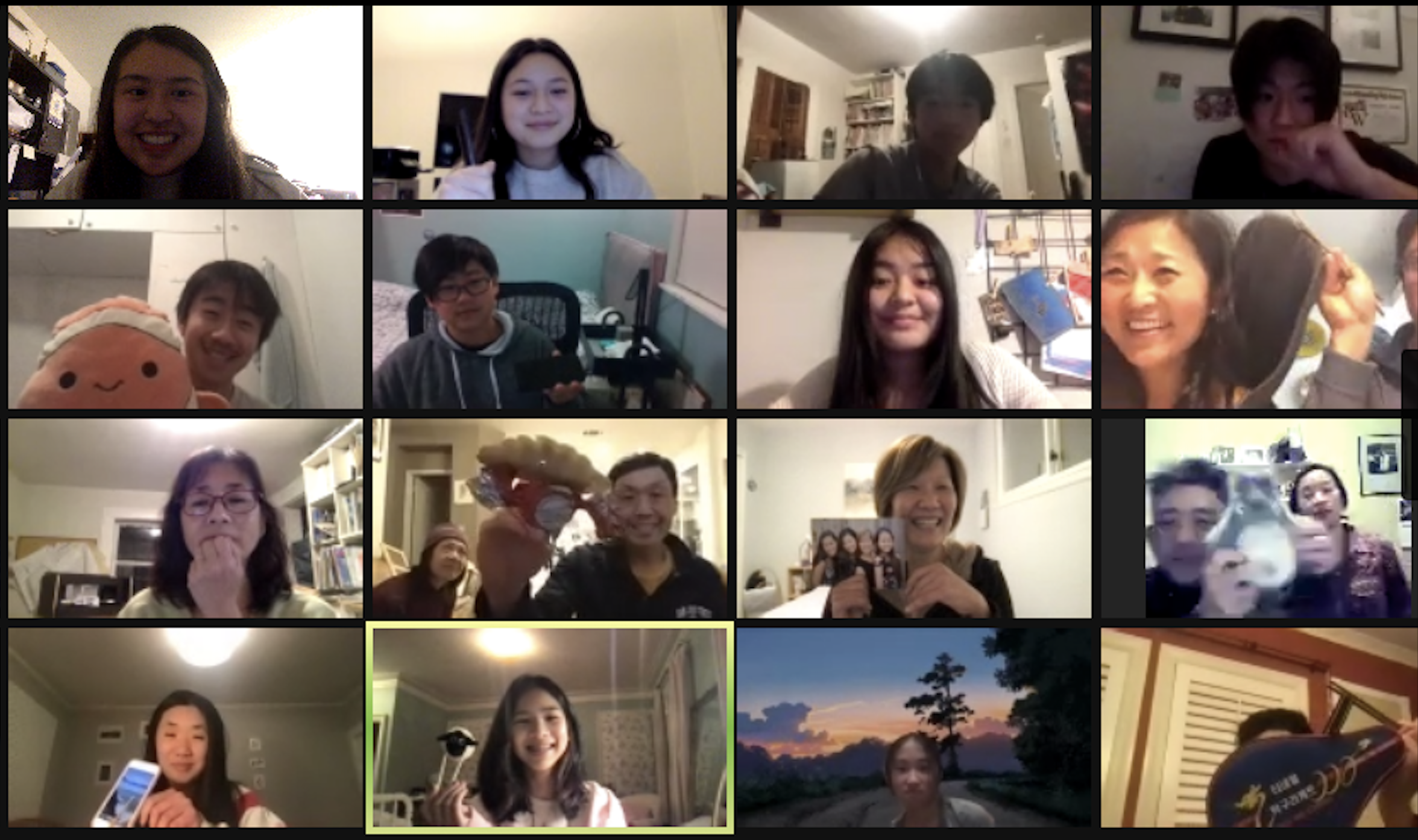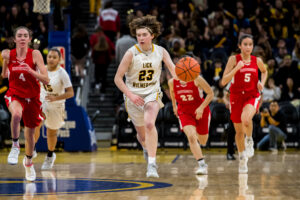During the COVID-19 pandemic, many clubs at LWHS have struggled to adjust to the online atmosphere. This challenge also applies to affinity clubs, which are especially important since they are a place where students of similar identities and their allies can foster connections and form a safe, welcoming community.
Jewel Ocampo ’21 is currently the president of API Students in Alliance (ASIA) and Kababayan (KABA) Club. According to their mission statements, ASIA is a space where all students can discuss and explore API issues, history and identity, while KABA Club promotes unity and the appreciation of Filipino culture.
“Making meetings fun and engaging is a lot harder on Zoom, and it’s a lot harder to get the human feedback that you’d usually get with people having conversations,” said Ocampo. In addition, many club members keep their cameras off during meetings, leaving club leaders unaware of whether they are actively listening or not.
Magnolia Finn ’21 echoed this sentiment. She is a leader of Gender Sexuality Awareness (GSA), which aims to make LWHS an inclusive and safe space for all LGBTQIA+ people.
“I feel like on Zoom, it’s hard to really bond because you can’t have side conversations, and you can’t have people speaking all at the same time in a whole group discussion,” said Finn. She further explained that what she truly misses about in-person club meetings is the spontaneity of conversation.
Aside from engagement within club meetings, it’s been difficult to convince community members to even attend meetings in the first place. “During the pandemic, you’re on Zoom a lot, and it’s emotionally and mentally exhausting,” said Ocampo. After attending four Zoom classes every day in addition to extracurriculars that may involve video calls, many students simply do not have the bandwidth to attend club meetings.
Last year, at the start of the pandemic, GSA had consistent attendance at their virtual meetings. “It was incredible to see everyone coming together and having conversations and bonding. And at first, it remained consistent, and people came, but then Zoom fatigue kicked in towards the end of the year,” said Finn.
In an effort to attract more members to attend meetings and lessen students’ stress levels, affinity clubs have shifted their meeting topics from more serious issues to more lighthearted and fun events. In GSA, meetings used to be more educational and discussion-based, but recent meetings have included streamings of the Netflix show “Queer Eye” and playing games such as Kahoot or skribbl.io. ASIA tried out a new platform, Toucan, which allows club members to wander between different virtual discussion spaces. To celebrate the Day of the Dead, Latinx Unidos sent club members pipe cleaners and art tissue paper to make flowers.
The Zoom environment has also been exhausting for affinity club leaders, a majority of whom are seniors who have also been managing the college application process. Finn said, “A lot of our difficulties and challenges throughout this year have really just been the energy level.” The GSA leaders have had to think about maintaining their mental health. Planning a meeting and then leading a Zoom call — where many members may not even attend — can be difficult. Because of this, GSA meetings have not been as consistent this year.
In addition to Zoom, the hybrid learning schedule, which includes an asynchronous day and accommodates multiple lunches and study periods for proper social distancing on campus, has been difficult for club leaders to navigate.
GSA jumped between different days and meeting times before settling for 7:30 p.m. on Thursdays. Finn described it as “challenging” to have meetings during lunchtimes since some club members were eating, others were in study hall, and some were at home. Students also have extracurriculars and sports after school, so a nighttime meeting worked the best.
ASIA experienced a similar problem and decided to create a Family Program, where club members would be paired with people who were from different grade levels but had similar interests and were in the same cohort. Two or three of these pairs would then be put together to form a family. The aim of this program is for students to gain consistent connections — especially across grade levels — in a time when it’s increasingly difficult and meet people to interact with outside of school.
The opportunity to make connections through affinity clubs has especially been taken advantage of by Frosh and Sophomore students. “That’s how they’re meeting people” at LWHS, Finn said. “It’s all through Zoom. They want to make as many connections as possible, so they put in the effort to go on another Zoom, whereas other people who’ve already experienced GSA or already have their group of friends don’t necessarily need to come.” For Frosh and Sophomores, especially those who have been in remote learning, club meetings are one of the only ways they’ve been able to foster connections with their peers and feel a sense of community.
The trend of mostly Frosh and Sophomores attending meetings applies to ASIA as well. Something else Ocampo has noticed is that parents have had high levels of engagement in affinity clubs this year. “Parents love going to meetings, which is just so funny. It’s very cute. It was really nice to see them get really engaged and talk to each other,” said Ocampo.
Though parents do not attend the weekly club meetings, ASIA has continued holding its yearly Lunar New Year Celebration, which celebrates Asian culture and food and is iconic for its parent and student chopstick relay. “We really wanted to keep some of the old traditions that we had. Instead of the usual relay, it was just about trying to be innovative and adapting to the situation,” said Ocampo. At this year’s celebration, parents and students ended up having a chopstick scavenger hunt where people had to find items in their home and, with chopsticks, hold them up to their Zoom camera.
Another annual event, the Multicultural Show, is currently being planned by KABA Club. Like the Lunar New Year celebration, the Multicultural Show will be fully virtual. Performers will digitally submit their work, which will then be compiled and edited into one large video for a live stream on the day of the event. Unlike previous years, when the show was in-person, visual art can be submitted by students.
Ocampo has been a part of planning the Multicultural Show for the last two years. “This year is a lot less intense because we don’t have to schedule performers,” said Ocampo. “We’re hoping to get all the affinity clubs involved, just to give a shout out to the different cultures we have on our campus.”
With the difficulties presented by online learning, affinity club leaders have felt well-supported by the school, and more specifically, The Center for Civic Engagement. At the end of every semester, all club leaders receive an end-of-semester report survey that ensures clubs have been meeting and have fulfilled their requirements. For active membership clubs, they are required to hold service projects and community events. There are also questions about challenges experienced and further support that students would like to see from The Center.
“Mainly where our problems lie is either with leadership or attendance or Zoom fatigue, and there’s nothing the school can really do to change that or improve that in any way,” said Finn.
Ocampo agreed with Finn’s sentiment and also explained that ASIA has not utilized the support of The Center as much as they could have. “I know a lot of clubs want to send things [to club members] but it’s been really difficult to organize that,” said Ocampo. “It would be helpful if the school would help with that, but we also just haven’t really asked them to.”
Leading affinity clubs on Zoom during this pandemic has taught leaders valuable lessons and skills.
“Being in people’s homes has brought in challenges and has made me more aware of people’s comfortability and people’s safety,” said Finn. Some GSA members may not have a safe space at home or aren’t out to their parents, so Finn has had to think about that in her leadership of GSA.
“I’ve learned how to engage a group with very little engagement, and adapt and improvise based on what people’s moods are,” said Ocampo.
As LWHS moves into the last quarter of the year, Ocampo has one message for students: “If you’re in an affinity club, really appreciate the leadership because it’s hard to make things engaging and fun. And, thanks to everyone who still comes to meetings, even though it’s online.”







